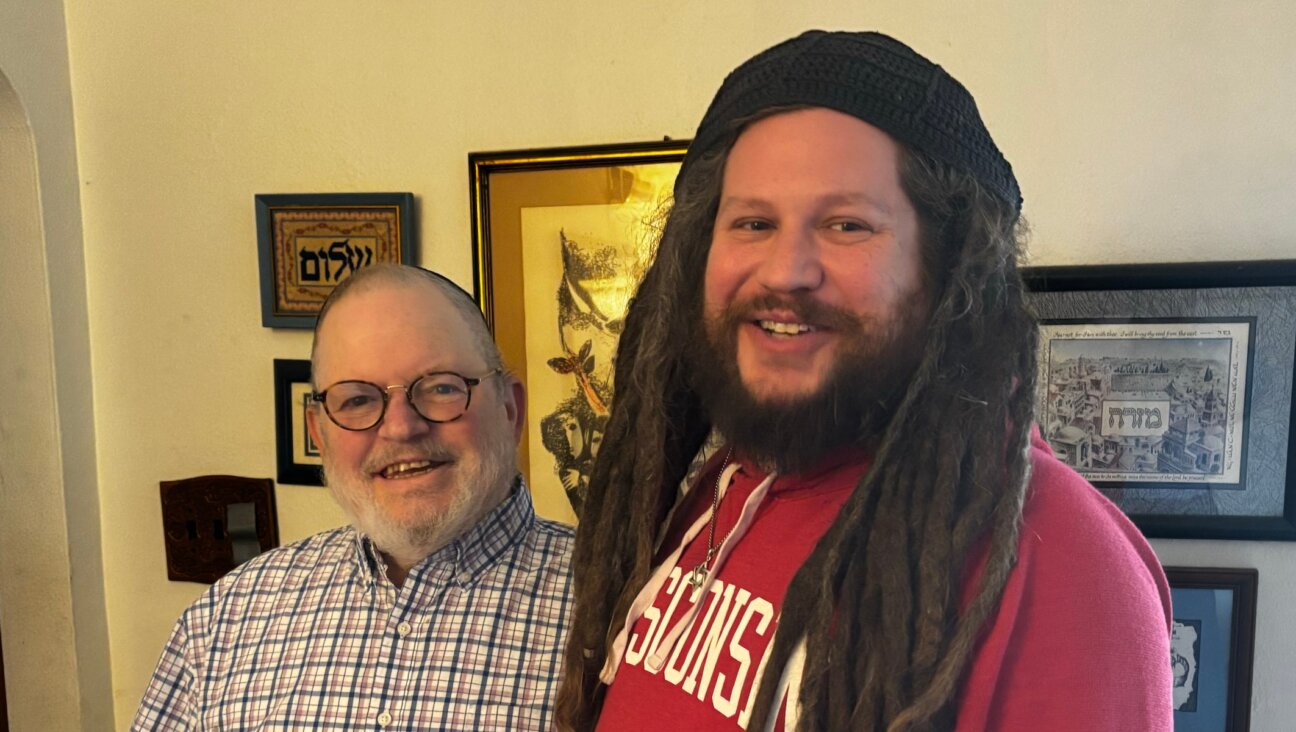Author Blog: The Return of Eli Gershonson

Gerald Kolpan’s newest book, “Magic Words: The Tale of a Jewish Boy-Interpreter, the World’s Most Estimable Magician, a Murderous Harlot, and America’s Greatest Indian Chief,” is now available. His blog posts are featured on The Arty Semite courtesy of the Jewish Book Council and My Jewish Learning’s Author Blog Series. For more information on the series, please visit:

When you’re writing a novel, it’s often surprising how a character will insinuate himself into your story.
Sometimes they appear out of nowhere — as in the case of Prophet John McGarrigle, the clairvoyant Indian scout in my new novel, “Magic Words.” I was writing a passage in which one of my main characters, Julius Meyer, walks into an overheated shack seeking shelter from the cold. Inside that shack was Prophet John.
Sure, Julius was surprised, by not half as surprised as I was. I had no idea who John was, what he was doing in that shack or why he was in my book. I had to write him to find out.
The story of Eli Gershonson, a Jewish peddler in the Old West, is just the opposite. He took a long and circuitous route to his supporting role in “Magic Words.”
Eli started life in my little son’s bedroom. He was part of an imaginary gang of “protectors” I would tell Ned about at bedtime; their job was to fight off his nightmares.
The group included the Bagel Man (the hero of a song I made up), the Guys Up The Street (some tough dudes who hung at 2nd & Kenilworth, our Philadelphia corner), and Eli Gershonson, Esq., a lawyer who would take the bad dreams to court if they dared bother my boy (nothing like a lawsuit to scare off Freddy Krueger).
It may sound a bit elaborate, but most nights, it worked.
Cut to 15 years later.
I was writing my first novel, “Etta,” and found myself in need of a name for a character — a Jewish peddler of the type who roamed the West by the hundreds at the turn of the century. By this time, my son was 21 and no longer needed a nightside attorney, so I appropriated Mr. Gershonson’s moniker, revoked his law degree and gave him a wagon filled with pots, pans, cloth, needles, pins and other khazerai. In the end, he appeared in less than two pages in the book, but that was all he needed to advance the plot.
I figured that was my farewell to Eli.
Then, in 2009, when I was writing “Magic Words,” I needed a name and background for another Jewish peddler who would be Julius Meyer’s uncle in the book. He needed to be patient, honest, and kind, but with a quiet authority.
I soon realized that the character I was envisioning had all of the qualities of the character I already had.
So, Eli Gershonson jumped from my first book to my second, pots and pan intact, though shedding some 30 years in the transition. In “Magic Words,” his part isn’t a page-and-a-half cameo, but a major role woven throughout the narrative. In fact, he’s one of the last characters we see in the book.
I’m thankful to Eli for allowing me to move him from one story to the next. His presence gave my two books a kind of crazy continuity, not to mention that I was afforded the great pleasure of getting to know him better.
Believe me, he’s a mensch.
Visit Gerald Kolpan’s website for more about “Magic Words” and his first novel, “Etta.”
The Jewish Book Council is a not-for-profit organization devoted to the reading, writing and publishing of Jewish literature. For more Jewish literary blog posts, reviews of Jewish books and book club resources, and to learn about awards and conferences, please visit www.jewishbookcouncil.org.
MyJewishLearning.com is the leading transdenominational website of Jewish information and education. Visit My Jewish Learning for thousands of articles on Judaism, Jewish holidays, Jewish history and more.
A message from our Publisher & CEO Rachel Fishman Feddersen

I hope you appreciated this article. Before you go, I’d like to ask you to please support the Forward’s award-winning, nonprofit journalism so that we can be prepared for whatever news 2025 brings.
At a time when other newsrooms are closing or cutting back, the Forward has removed its paywall and invested additional resources to report on the ground from Israel and around the U.S. on the impact of the war, rising antisemitism and polarized discourse.
Readers like you make it all possible. Support our work by becoming a Forward Member and connect with our journalism and your community.
— Rachel Fishman Feddersen, Publisher and CEO























